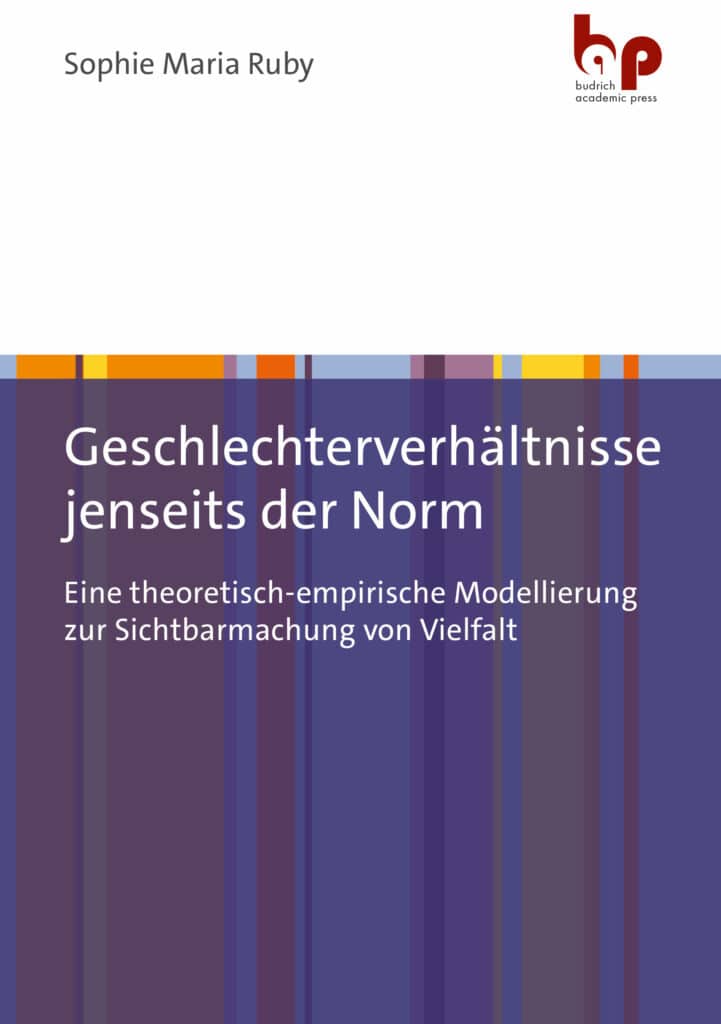Gendered Configurations of Humans and Machines
Interdisciplinary Contributions
Erscheinungsdatum : 15.02.2021
30,99 € incl. VAT - 38,00 € incl. VAT
Beschreibung
In numerous fields of science, work, and everyday life, humans and machines have been increasingly entangled, developing an ever-growing toolbox of interactions. These entanglements affect our daily lives and pose possibilities as well as restrictions, chances as well as challenges. The contributions of this volume tackle related issues by adopting a highly interdisciplinary perspective. How do digitalization and artificial intelligence affect gender relations? How can intersectionality be newly understood in an increasingly internationally networked world?
This volume is a collection of contributions deriving from the “Interdisciplinary Conference on the Relations of Humans, Machines and Gender” which took place in Braunschweig (October 16–19, 2019). It also includes the keynotes given by Cecile Crutzen, Galit Wellner and Helen Verran.
The necessity of inter- and transdisciplinary reflection processes, especially between the social sciences and humanities on the one hand and the technical and natural sciences on the other hand, results from complex man-machine configurations: Machines open up new possibilities for mobility and communication, relieve us of tedious tasks, allow us to share information or overcome physical limitations. At the same time, technical products influence the way we think, act and feel, i.e. our forms of subjectification. Machines are thus not only configured by humans, but they represent an essential part of the (re)configuration of the human. How do relationships between humans and machines reproduce gender relations and are these relationships gendered? Which fields of action arise from the perspective of gender studies, queer and postcolonial studies?
Table of contents reading sample
The editors:
Jan Büssers, is a research assistant at the Department of the History of Science and Pharmacy at the Technische Universität Braunschweig, Germany
Anja Faulhaber, is a research assistant at the Human-Machine-Systems Engineering at the University of Kassel, Germany
Myriam Raboldt, is a research assistant at the Center for Interdisciplinary Women’s and Gender Studies at the TU Berlin, Germany
Rebecca Wiesner, is a research assistant at the Institute of Pharmaceutical and Medicinal Chemistry at the TU Braunschweig, Germany
Download for free: publicity leaflet (pdf)
The target group:
Researchers and lecturers in gender studies, science and technology studies
Zusätzliche Informationen
| ISBN | 978-3-8474-2494-9 |
|---|---|
| eISBN | 978-3-8474-1646-3 |
| Format | 14,8 x 21 cm |
| Scope | 306 |
| Year of publication | 2021 |
| Date of publication | 15.02.2021 |
| Edition | 1. |
| Language | Englisch |
| Publisher | |
| Series | |
| Volume | 8 |
Autor*innen
Beschreibung
Beschreibung
In numerous fields of science, work, and everyday life, humans and machines have been increasingly entangled, developing an ever-growing toolbox of interactions. These entanglements affect our daily lives and pose possibilities as well as restrictions, chances as well as challenges. The contributions of this volume tackle related issues by adopting a highly interdisciplinary perspective. How do digitalization and artificial intelligence affect gender relations? How can intersectionality be newly understood in an increasingly internationally networked world?
This volume is a collection of contributions deriving from the “Interdisciplinary Conference on the Relations of Humans, Machines and Gender” which took place in Braunschweig (October 16–19, 2019). It also includes the keynotes given by Cecile Crutzen, Galit Wellner and Helen Verran.
The necessity of inter- and transdisciplinary reflection processes, especially between the social sciences and humanities on the one hand and the technical and natural sciences on the other hand, results from complex man-machine configurations: Machines open up new possibilities for mobility and communication, relieve us of tedious tasks, allow us to share information or overcome physical limitations. At the same time, technical products influence the way we think, act and feel, i.e. our forms of subjectification. Machines are thus not only configured by humans, but they represent an essential part of the (re)configuration of the human. How do relationships between humans and machines reproduce gender relations and are these relationships gendered? Which fields of action arise from the perspective of gender studies, queer and postcolonial studies?
Table of contents reading sample
The editors:
Jan Büssers, is a research assistant at the Department of the History of Science and Pharmacy at the Technische Universität Braunschweig, Germany
Anja Faulhaber, is a research assistant at the Human-Machine-Systems Engineering at the University of Kassel, Germany
Myriam Raboldt, is a research assistant at the Center for Interdisciplinary Women’s and Gender Studies at the TU Berlin, Germany
Rebecca Wiesner, is a research assistant at the Institute of Pharmaceutical and Medicinal Chemistry at the TU Braunschweig, Germany
Download for free: publicity leaflet (pdf)
The target group:
Researchers and lecturers in gender studies, science and technology studies
Bibliography
Zusätzliche Informationen
| ISBN | 978-3-8474-2494-9 |
|---|---|
| eISBN | 978-3-8474-1646-3 |
| Format | 14,8 x 21 cm |
| Scope | 306 |
| Year of publication | 2021 |
| Date of publication | 15.02.2021 |
| Edition | 1. |
| Language | Englisch |
| Publisher | |
| Series | |
| Volume | 8 |
Bewertungen (0)
Bewertungen
Es gibt noch keine Bewertungen.
Authors
Autor*innen
Schlagwörter
This might also be of interest to you:
Verlag Barbara Budrich
- +49 (0)2171.79491-50
- info@budrich.de
-
Stauffenbergstr. 7
51379 Leverkusen
Germany












Bewertungen
Es gibt noch keine Bewertungen.